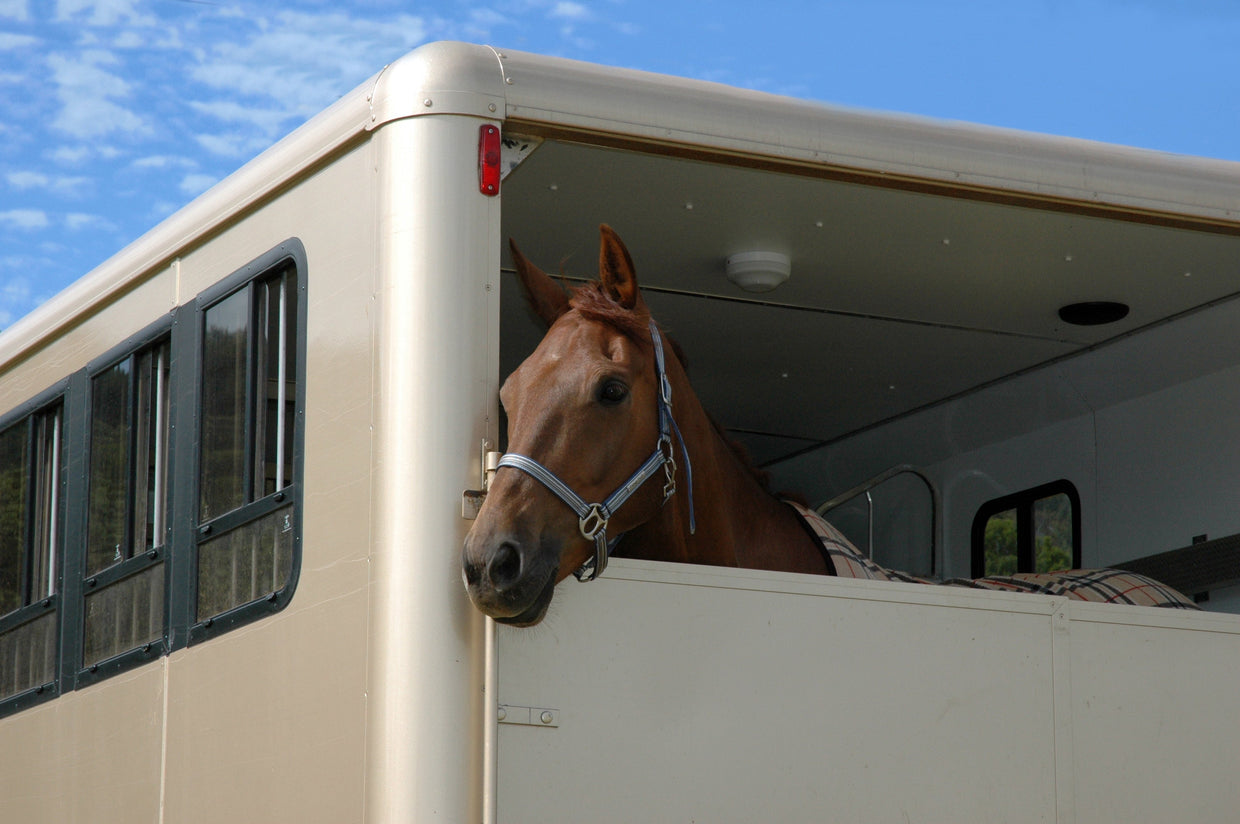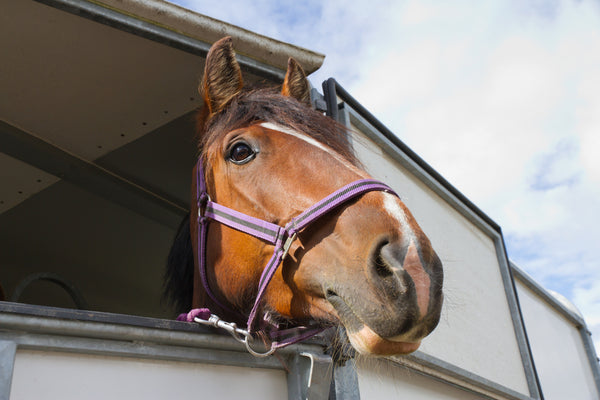

How to keep your horse happy in transit
Whether your horse is a complete novice when it comes to travel, or he or she has been doing it for a while, it can still be a daunting experience. Lowering your horse’s stress levels when in transit is important for their health and wellbeing. Let’s walk through the signs of horse stress, and our top tips for safe and happy horse travel…
Common signs of horse stress
Each individual horse will show stress in different ways, and – like their owners – some horses respond better to stressful situations than others. Nevertheless, stress can be a real problem with some significant negative consequences. Here are a few of the most common signs of equine stress:
- Tail swishing
- Teeth grinding
- Trembling
- Fast breathing
- Agitated neighing or snorting
- Repeated yawning
- Unusual behaviour – like pawing, rearing and bucking
Our top tips for keeping your horse safe and calm during transport
Use the right horse trailer
When picking out a trailer, it’s important to make sure the one you choose is strong enough. Trailers can come in all shapes and sizes, so you’ll need to measure and weigh your horse to figure out which trailer is right for them. The perfect trailer will have plenty of room inside for your horse. It should also be able to carry the weight of your horse plus the weight of any equipment you’re taking with you.
Check the condition of your trailer before setting off
Look out for sharp or jagged edges inside the trailer, as your horse might accidentally cut themselves. You’ll also need to check your loading ramp if you have one. It needs to be sturdy enough for your horse, and not too slippery.
Lastly, we always recommend taking your vehicle to a garage for a complete inspection before any lengthy trailering with your horse. The last thing you need is to have car trouble when transporting your four-legged companion!
Get your horse used to being around your trailer
Horses that are kept outdoors all year round are used to roaming free in large pastures. When you suddenly try to load them into a trailer, they can be easily intimidated. Leading up to your trip, try and get your horse comfortable in and around your trailer. Give them treats and praise when they show interest in the trailer, or even try to feed them inside of it.
It seems bizarre that any horse would willingly walk into a claustrophobic metal box – we’re lucky our horses even tolerate it!
Horses don’t necessarily like being in confined spaces – after all, in the wild, they’re free-roaming herd animals. Therefore, it’s crucial to make your trailer as appealing as possible to put your horse at ease. Make sure it’s light and airy, ensure the ramp is sturdy enough, and try adding their favourite hay to entice them inside.
Complete a travel checklist
Whether you’re moving your horse to a new location, or simply travelling to a competition, a well-prepared travel checklist will help you stay organised. We always recommend bringing extra essentials – like water, hay, food, and tack. Your checklist might include:
- A horsey first-aid kit
- Grooming equipment
- A spare headcollar and lead rope
- Saddles, bridles, etc.
- Plenty of water and hay
- A horse rug / blanket
- Their horse passport
- YuMOVE Joint Care for Horses to help soothe stiff joints, and support joint structure and mobility
Watch out for the weather
If you’re travelling in the summer months…
The inside of your trailer can become very hot. This can cause heat-related stress, or even heat stroke. Check out our guide on how to keep your horse cool in hot weather – it even includes some handy trailer tips!
If you’re travelling in the winter months…
Make sure your horse is hydrated and well fed. This helps them to maintain their internal temperature. A horse rug / blanket will help, too! Extreme weather – like thunderstorms or strong winds – might frighten your horse. In the worst cases, it’s best to reschedule your plans. A scared horse can hurt themselves when in tow.
Take regular breaks
Long distance transportation can be hard on your horse’s legs and joints. They’re constantly standing and having to balance themselves. Taking regular pit stops gives them some much-needed rest. Of course, we also recommend giving them YuMOVE Joint Care for Horses to help soothe stiff joints, support joint structure, and aid mobility.
Check your horse’s weight and vital signs
Horses can lose up to 50lbs during long periods of travel. If they’ve lost any more than that, they might be experiencing shipping fever (more on this below). Your horse’s gums can easily indicate whether they’re dehydrated or not. Pink gums are a sign of good health and hydration, any other colour or dry gums can be an indication of dehydration.
By taking your horse's temperature, resting pulse and breathing rate before you travel, you’ll understand the normal range for your individual horse. This way, you’ll be able to more easily recognise when things change. And always keep a vet’s phone number to hand just in case.
Bring heaps of hay and water with you
Horses should eat around 2% of their body weight each day. Providing plenty of hay will not only keep your horse’s stomach full, but it can also serve as a distraction from the stress of travelling. Horses also drink up to 50 litres of water a day, and it's vital that you can roughly match their usual consumption during your travels.
What is shipping fever?
The stress of long-distance transport, risk of dehydration and often reduced air circulation can impact your horse when they travel.
There are lots of risks factors to the development of shipping fever - a non-contagious bacterial respiratory infection usually associated with travel.
Ways to help prevent shipping fever
- Only trailer your horse when they’re in prime health. Horses who are already ill are more likely to become sick after their travels.
- Clean out your trailer before travelling. A good spring clean to remove as much dust and debris as possible will reduce the chance of respiratory issues.
- Ensure the trailer is well-ventilated. Especially during winter, when you may be inclined to close the windows.
- It is recommended that horses be allowed to lower their heads during travel as often as possible.
The signs of shipping fever
Unfortunately, shipping fever can still happen with even the most diligent horse owners. Common warning signs include:
- Reduced appetite
- Increased body temperature
- Coughing
- Nasal discharge
- Depression
It’s vital to call the vet immediately if you have any concerns or if you notice any of these symptoms.
Taking the right steps to transport your horse in comfort is very important for their health, wellbeing, and mobility. For a bit of extra support, we recommend giving them YuMOVE Joint Care for Horses to help support mobility and joint structure in horses of all ages.






